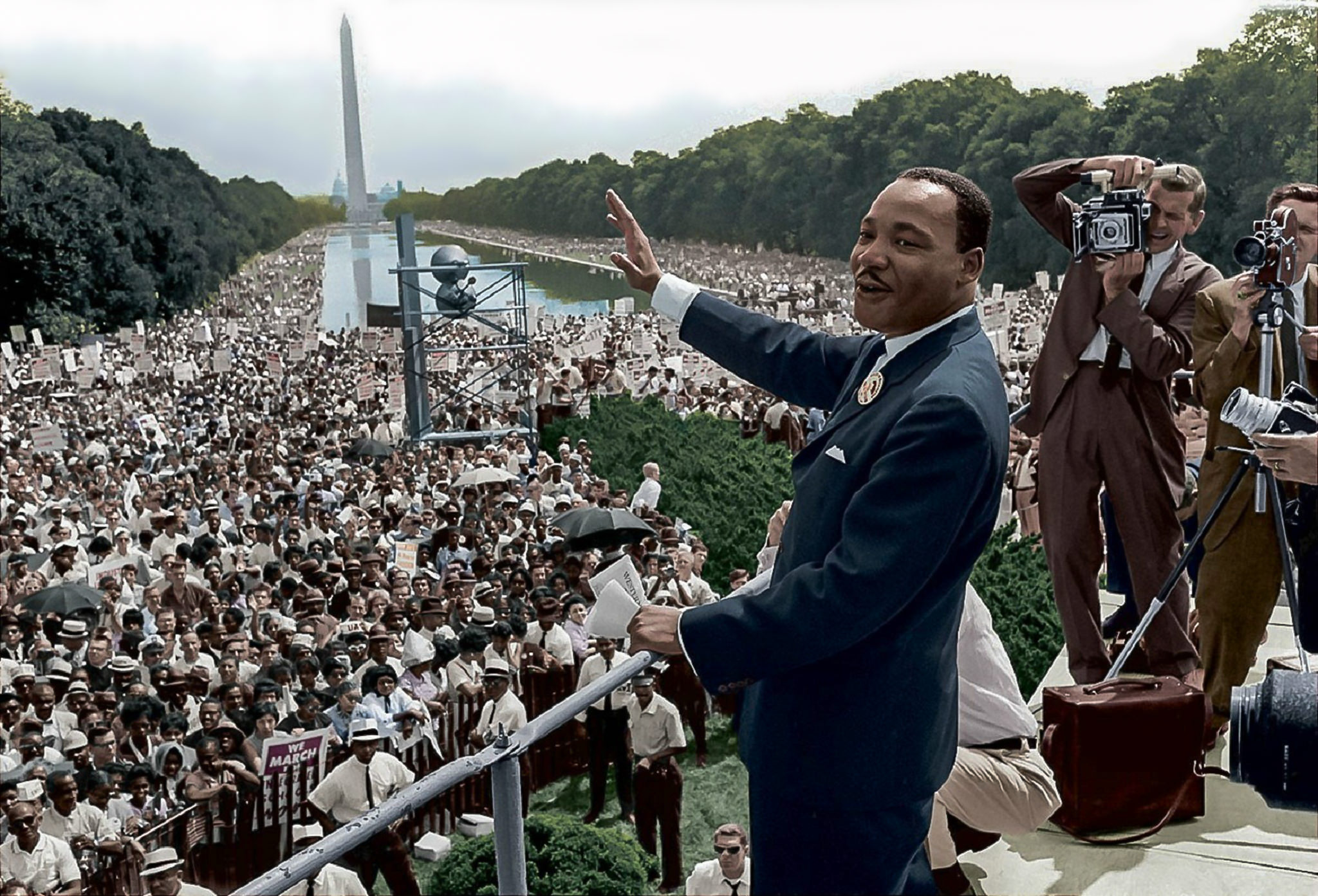Words are powerful things. Put in the hands of skilful orators they have the ability to inspire, heal and rally vast swathes of people. And what could be more worth rallying for than the inherent dignity and equal rights of ‘all members of the human family’ (AKA, our human rights)?
These six speakers advocate for equality, freedom, and dignity. But above all, what connects them is their belief in the power of free speech, and that their own voice can make a difference – and they did.
1. Eleanor Roosevelt, The Struggle for Human Rights, 1948
Let’s start off with the first lady of human rights – Eleanor Roosevelt with her famous 1948 speech ‘The Struggle for Human Rights’
We must not be confused about what freedom is. Basic human rights are simple and easily understood: freedom of speech and a free press; freedom of religion and worship; freedom of assembly and the right of petition; the right of men to be secure in their homes and free from unreasonable search and seizure and from arbitrary arrest and punishment.
Check her out in action here:
2. Martin Luther King, I Have A Dream, 1963
Moving on to one of the most recognisable speeches of the 20th Century – Martin Luther King Jnr in 1963 ‘I Have A Dream.’
I have a dream that one day this nation will rise up and live out the true meaning of its creed: “We hold these truths to be self-evident, that all men are created equal.
His delivery brings his words off the page:
3. Emmeline Pankhurst, Freedom or Death, 1913
Great speeches have a habit of connecting to times of strife. The struggle for women’s suffrage is littered with powerful speeches denouncing inequality – here is one of the most famous from Emmeline Pankhurst in 1913, ‘Freedom or Death,’
Human life for us is sacred, but we say if any life is to be sacrificed it shall be ours; we won’t do it ourselves, but we will put the enemy in the position where they will have to choose between giving us freedom or giving us death.
If you want to listen to it, check out this reading of it:
4. Harold Macmillan, The Wind of Change, 1960
Sometimes the location of a speech underlines its impact. Here Harold Macmillan is addressing the South African Parliament about racial discrimination and slavery in his 1960 ‘The Wind of Change’ speech.
The wind of change is blowing through this continent, and whether we like it or not, this growth of national consciousness is a political fact. We must all accept it as a fact, and our national policies must take account of it.
Check out Harold in full flow here:
5. Nelson Mandela, I Am Prepared To Die, 1964
Four years later in 1964 in the same country, Nelson Mandela was on trial on charges of sabotage and made the following speech from the dock:
During my lifetime I have dedicated myself to this struggle of the African people. I have fought against white domination, and I have fought against black domination. I have cherished the ideal of a democratic and free society in which all persons live together in harmony and with equal opportunities. It is an ideal which I hope to live for and to achieve. But if needs be, it is an ideal for which I am prepared to die.
Here is Mr Mandela using the court room as his megaphone:
6. Elie Wiesel, The Perils of Indifference
We’ll end with a personal favourite. Here is Elie Wiesel, a Holocaust survivor addressing President Clinton in 1999 talking about ‘The Perils of Indifference.’
Indifference elicits no response. Indifference is not a response. Indifference is not a beginning; it is an end. And, therefore, indifference is always the friend of the enemy, for it benefits the aggressor — never his victim, whose pain is magnified when he or she feels forgotten. The political prisoner in his cell, the hungry children, the homeless refugees — not to respond to their plight, not to relieve their solitude by offering them a spark of hope is to exile them from human memory. And in denying their humanity, we betray our own.
Watch the full 20 minutes here:
These are just a small selection of powerful speeches, which speeches would you put in your top ten?
- Check out our guest post on ‘Free Speech and Why it Matters’
- For more on freedom of expression and why it matters, read our Explainer here.
- To read about why we should continue to fight for our freedoms, read RightsInfo’s director’s opinion post, ‘Evil Progresses Cunningly‘.







